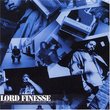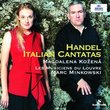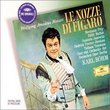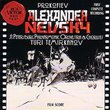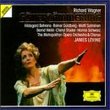| All Artists: Hector Berlioz, Sir Colin Davis, London Symphony Orchestra and Chorus, Ben Heppner, Michelle DeYoung, Peter Mattei, Petra Lang, Sara Mingardo, Stephen Milling, Kenneth Tarver Title: Berlioz: Les Troyens Members Wishing: 0 Total Copies: 0 Label: London Symphony Orchestra Release Date: 1/30/2002 Album Type: Box set, Import, Live, Original recording reissued Genre: Classical Style: Opera & Classical Vocal Number of Discs: 4 SwapaCD Credits: 4 UPCs: 822231101024, 5030820019772 |
Search - Hector Berlioz, Sir Colin Davis, London Symphony Orchestra and Chorus :: Berlioz: Les Troyens
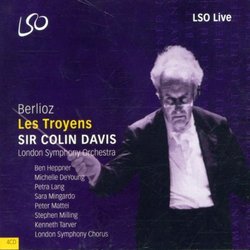 | Hector Berlioz, Sir Colin Davis, London Symphony Orchestra and Chorus Berlioz: Les Troyens Genre: Classical
The epic tale of the fall of Troy haunted Berlioz from childhood and inspired some of his most passionately dramatic, richly colorful music. This is Colin Davis's second recording of Les Troyens, following his (out-of-prin... more » |
Larger Image |
CD DetailsSynopsis
Amazon.com The epic tale of the fall of Troy haunted Berlioz from childhood and inspired some of his most passionately dramatic, richly colorful music. This is Colin Davis's second recording of Les Troyens, following his (out-of-print) 1969 version. Magnificent though it was, some reckoned that reading lacked something in zip. Here, however, such reservations could never apply. Recorded across several lavishly praised concert performances in London in December 2000, this Troyens has an extraordinary electricity and rhythmic drive. Ben Heppner combines lyricism with heroic strength as Aeneas, while Michelle de Young as Dido, though not erasing memories of Janet Baker's brilliance in the role, produces a ravishing, creamy sound. Both perhaps lack the last ounce of character (and their French is occasionally flat-vowelled). Petra Lang as Cassandra is attention-grabbing from the start of the opera with her panache and commitment. Also catching the ear are Stephen Milling's granitelike Narbal and Sara Mingardo's bewitching tones as Anna. The LSO gives its magnificent all and the London Symphony Chorus is likewise in terrific form, although some will miss the clear-cut timbre of a full-fledged opera chorus. The ultimate stars, though, are Berlioz and his faithful champion, Davis. --Andrew Green Similar CDsSimilarly Requested CDs
|
CD ReviewsExciting Live Performance at Incredible Bargain Price Nicholas A. Deutsch | New York, NY USA | 10/29/2001 (5 out of 5 stars) "This live 2000 performance is both a thrilling experience & one of the bargains of all time - & it comes with full French/English libretto plus David Cairns's authoritative essay. But... in Sir Colin Davis's landmark 1969 (studio) version, there were 3 French-speaking soloists (in supporting roles) & - aside from 1 Swede & 1 Canadian - the rest were British, which gave some linguistic consistency to the performance. Here a lone Frenchwoman (in a minor role) is surrounded by a United Nations of artists: Canada, the U.S., Germany, Bulgaria, Turkey, Britain, Armenia, Sweden, Denmark & China... No language coach could be expected to bring verbal cohesion to such a group, nor to fix basic deficiencies in language training; the French on these discs ranges from well-schooled to mediocre. That aside, this performance deserves all the praise it's received. Davis's fine interpretation hasn't changed in basic conception; where things are different, it's for the better, especially in the tender care he now brings to the more lyrical passages. Plus there's the added excitement of a live performance. Orchestra & chorus are excellent, & so is almost all of the solo singing. Petra Lang is a vivid Cassandra, using her dark mezzo to great effect. Ben Heppner sings Aeneas really beautifully with no strain whatsoever, in itself a tremendous accomplishment; not by temperament a "live wire," he nonetheless rises to the dramatic challenges of the last act to great effect. Michelle DeYoung's Dido is more a very promising role debut that a fully finished portrayal (she was "moved up" from Cassandra on short notice). This gifted singer, blessed with a beautiful voice & strong theatrical instincts, does much lovely singing, but the part isn't fully "in" her voice yet. Her French vowels, too, are surprisingly unreliable, & she tends to fuss the musical line in the cause of "expressiveness." (Listen to Marisa Ferrer on Sir Thomas Beecham's electrifying 1947 broadcast Troyens [Malibran-Music CDRG 162] to hear what a difference correct, clear vowels & an unshakable legato can make). Highly recommended - & thank you, LSO, for making these wonderful performances available at reasonable cost. (But if you love, or fall in love with Les Troyens, please hear the Beecham version for that extra dimension of linguistic authenticity.)" 5-plus Nicholas A. Deutsch | 07/23/2002 (5 out of 5 stars) "This recording really deserves more than 5 stars but, as 5 is the limit then I guess I'll have to stick with it. I agree with what the other '5 star reviewers' have said. This is a quite superb account of Berlioz's stunning masterpiece. I love every single note of it, especially when played as it is here, with such passion, fervour, commitment, and beauty. Davis's conducting is extraordinary. The 4 hours whip past in no time at all, completely involving the listener, but never rushing on at the expense of the more lyrical moments, for example the beautiful 20 minute ending of Act IV. The sound quality is the best I have of any recorded opera: bright and clear yet also warm; an amazing achievement for a live performance (there is almost zero audience noise). I've had this recording for 12 months now, and it's certainly in my top three recordings of all time. Included is a libretto too. My one highlight (if I had to choose only one) would be Petra Lang's Cassandra. She gives a scene-stealing performance of remarkable intensity, and her long duet with Chorebus in Act One is probably my favourite part of the score. Berlioz was an absolute genius, and this recording does that genius full justice..." Davis's second-best Troyens pclaudel | New York City | 11/27/2008 (3 out of 5 stars) "Many conductors, directors, impresarios, and audience members are either uninterested in or unconcerned about certain stylistic aspects of performance--specifically, the aspects of style wherein linguistic and musical matters seemingly run together. With respect to this recording of Les Troyens, they are the lucky ones. Whilst Davis's mastery of Berlioz's strictly musical style is and has long been remarkable, it seems not to have extended to the choice of singers (in truth, he might have had little say in the casting). As has elsewhere been noted, none of the singers of the leading parts is a native speaker of French. What is more important is that few of them sing French even adequately. Petra Lang, it should be said, does a fine job; she is by far the most gripping performer in a cast that sometimes sounds almost amateurish. She alone is measurably superior to her opposite number (the fiery but edgy Berit Lindholm) in the earlier Davis set. Michelle DeYoung undercharacterizes and has an undistinguished voice; she is no match for Josephine Veasey, who, alert and involved, is at times almost as good as Baker or Crespin. The unimaginative Heppner cannot compare with the astonishing Jon Vickers, who is not even in best voice and is barely half as gripping as he was in the theater--nor for that matter with the best Énée of them all, Georges Thill (cf. Les Introuvables du Chant Français [Box Set], where excerpts from the role can be found, along with many other treasures from the long-past glory days of French singing). Attention has repeatedly and fairly been drawn to Vickers's odd vowels, yet it always sounds as if he is singing French, albeit eccentrically, and he is alive to every facet of character and every word's implication. His musical and dramatic instincts are a marvel to behold.
From its frequent thinness of tone, one might reasonably suppose that the LSO Chorus is largely made up of twenty-somethings; their French pronunciation, while no more than adequate, is, however, no worse than what one typically hears at the Metropolitan Opera or Covent Garden. The chorus of the Royal Opera House on the earlier set sounds far better rehearsed and sings with appropriate weight and fully supported tone when those qualities are required. The LSO itself is extremely fine--splendid in fact--but in truth so is the orchestra of the Royal Opera House. A choice between them will perforce be grounded less in fact than in sentiment. The same is true for Davis's interpretation. The newer reading is different--generally a bit swifter and lighter--but it is clearly the product of the same re-creative sensibility that shaped the earlier reading. The actual sound of this recording is superior to its predecessor's, but only a sonic voluptuary would consider the edge sufficient for a verdict in its favor. In sum, while this performance must have been exciting on the night itself, it is not something for the many nights and days ahead. Buy both Davis recordings, if you will, but it's the newer one that will probably collect dust a good deal faster." |

 Track Listings (13) - Disc #1
Track Listings (13) - Disc #1